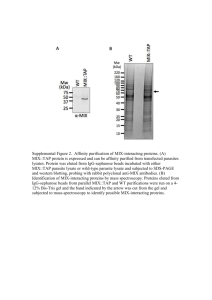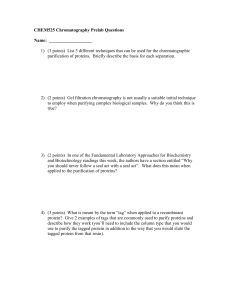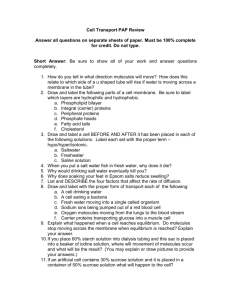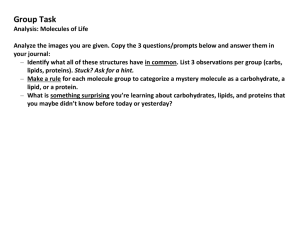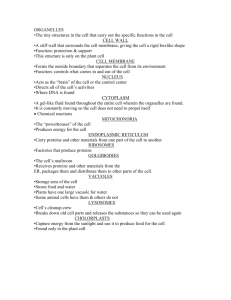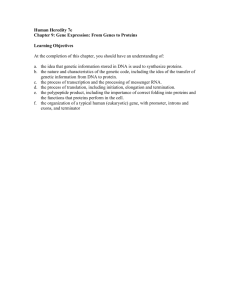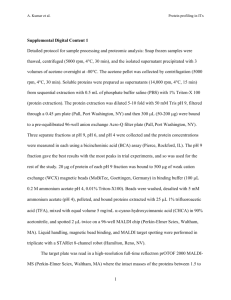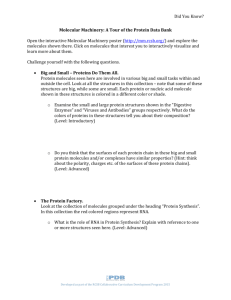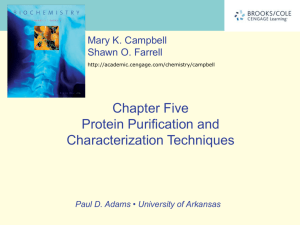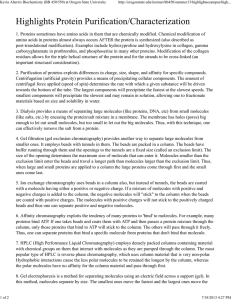Why do scientists want to purify proteins
advertisement
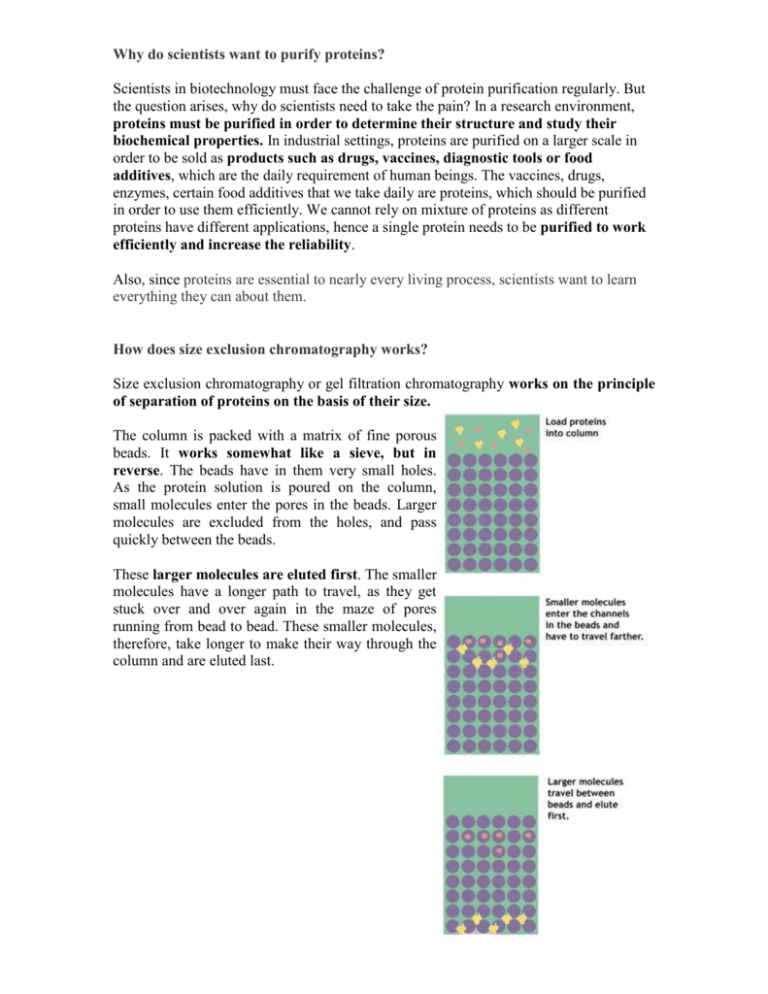
Why do scientists want to purify proteins? Scientists in biotechnology must face the challenge of protein purification regularly. But the question arises, why do scientists need to take the pain? In a research environment, proteins must be purified in order to determine their structure and study their biochemical properties. In industrial settings, proteins are purified on a larger scale in order to be sold as products such as drugs, vaccines, diagnostic tools or food additives, which are the daily requirement of human beings. The vaccines, drugs, enzymes, certain food additives that we take daily are proteins, which should be purified in order to use them efficiently. We cannot rely on mixture of proteins as different proteins have different applications, hence a single protein needs to be purified to work efficiently and increase the reliability. Also, since proteins are essential to nearly every living process, scientists want to learn everything they can about them. How does size exclusion chromatography works? Size exclusion chromatography or gel filtration chromatography works on the principle of separation of proteins on the basis of their size. The column is packed with a matrix of fine porous beads. It works somewhat like a sieve, but in reverse. The beads have in them very small holes. As the protein solution is poured on the column, small molecules enter the pores in the beads. Larger molecules are excluded from the holes, and pass quickly between the beads. These larger molecules are eluted first. The smaller molecules have a longer path to travel, as they get stuck over and over again in the maze of pores running from bead to bead. These smaller molecules, therefore, take longer to make their way through the column and are eluted last.
